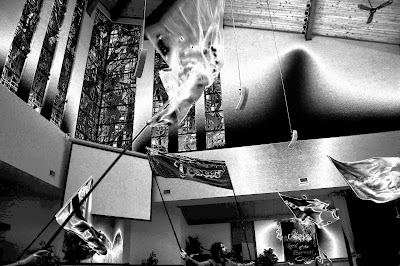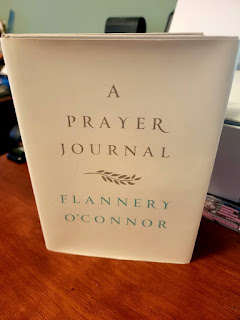 |
| (Green Lake Conference Center, Wisconsin) |
At Redeemer Fellowship Church we have a team of Elders who function in non-task-oriented ways. As Elders our focus is twofold: discerning what God is saying to us, and loving and serving our church family.
One thing we do not do is brainstorm about programs we could implement in our church. What a relief this is to me! I've been there, done that, and don't want to do it ever again.
"Some of my worst disasters in ministry have come from trying to implement a vision, only to find out that no one else was buying into it. They might have even agreed that it was a good idea. For me. But it wasn’t theirs. So they didn’t get behind it."
Top-down "vision-casting" strategy looks like this.
The pastor gets a vision for the church through prayer, Bible-reading or the latest church leadership conference
The pastor preaches about the vision
The leaders and congregation get behind the vision
The vision is supported, preached, and repeated regularly
Vaters says there are five problems with this.
Problem 1 - It's more Old Testament than New Testament.
In Acts 2 the Holy Spirit descends on the entire church. Peter than speaks for what the entire church experienced.
"The church gets the vision from prayer-soaked time in God's Word."
This is an example of what I call The Presence-Driven Church.
Problem 2 - It relies on obscure and/or questionably interpreted Bible passages.
How many times has Proverbs 29:18 been cited in defense of top-down vision-casting - Where there is no vision, the people perish. But the entire verse, in context, is really about keeping God's laws, not casting visions. It reads: Where there is no vision, the people perish: but he that keeps the law is happy.
Problem 3 - It puts all the weight on the pastor.
In Acts 2 Peter did not shoulder the weight of the vision. He and the Eleven shared the vision, as Acts 2:14 says.
Here is the heart of pastoral burnout: the carrying of a vision, alone, and striving to recruit people to have a heart for it.
Problem 4 - It doesn't include the dreams and visions of church members.
Vaters writes:
"When I go to a church leadership conference, it’s not to find out what the leader’s vision is and how I can help them fulfill it. I go to get tools to help me fulfill the vision God has given me for my life and ministry. I think a lot of people would come to our churches if they could get that help from us."
Problem 5 - It requires constant selling.
Anyone who knows me knows I would be a failure as a salesperson. Thank God I don't have to do that as a pastor!
Vaters writes:
"The three most-taught principles of vision-casting are "repeat, repeat, repeat." I've been told constantly that if I don't remind people at a minimum of once a month about the vision, they'll forget it.
That's a problem.
Any vision that needs to be sold to me that constantly... I don't know... maybe it's not God's vision for me."
The reality is that, if a person has a vision from God burning inside of them, they couldn't stop thinking about it if they tried.
The role of a pastor is to equip the people for works of ministry, not to purchase equipment for the people to sit in while the pastor works. Vaters writes, "Leaders don't ask people to support their vision. They ask, "How can I help you reach your vision?""
Enter the small church. "Much of the emphasis on top-down vision-casting has been the result of our big church leadership obsession." It's hard to release a few thousand Christians into visionary missional activity that comes from God, to them.
Small churches could do this. Like the 120 worshipers who gathered on the Day of Pentecost. Vaters concludes:
"A community of believers, worshiping, dreaming and working together as guided by the Holy Spirit speaking to and through everyone. Now that's a vision worth writing down and running with."

























